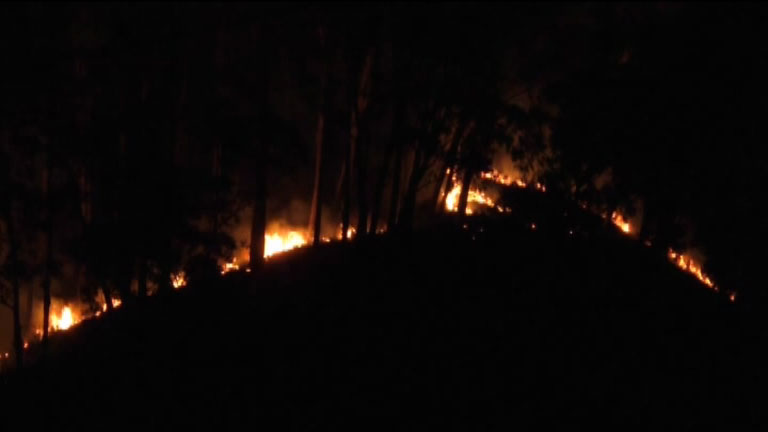
Fire at Hali-ela forest reserve

A sudden fire that has erupted in Hali-ela forest reserve, has destroyed about 30 acres of the reserve. The fire has erupted last night destroying about 30 acres of the forest. It is reported that a large number of wild animals live in the forest. Police suspect that the fire has been set on to hunt animals. They said that operations are continuing to nab the suspects.
Source – ITN, See more at – http://www.itnnews.lk/local-news/fire-at-hali-ela-forest-reserve/
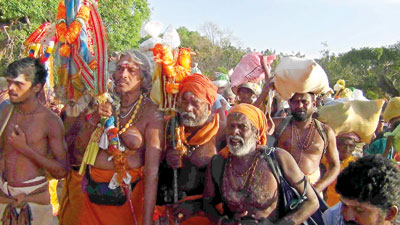
Annual trek of faith on foot
The Yala National Park gates were opened for Pada Yatra devotees last morning who are on their annual trek on foot from the north to Kataragama.
Pic by Sumanasiri Gunatillake
Source – The Sunday times,http://www.sundaytimes.lk/170716/news/annual-trek-of-faith-on-foot-250503.html
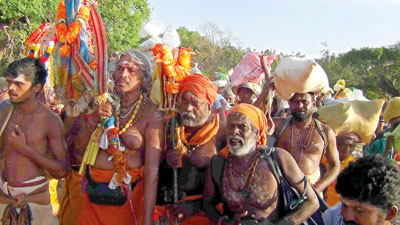
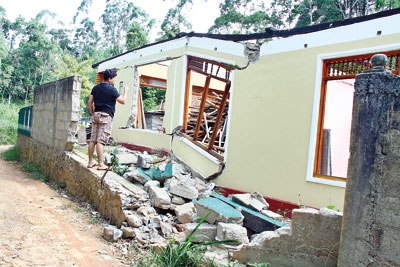
Uma Oya tragedy is all because of a bad EIA, activists charge
The controversial Uma Oya project was started on an Environmental Impact Assessment (EIA) report that was carried out in a questionable manner with little geological input, an environmental justice group has charged.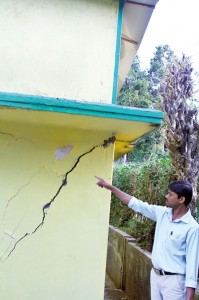
Hemantha Withanage, Founder and Executive Director of the Centre for Environmental Justice, claimed that the project was started in haste with the Iranian project company, FARAB, itself carrying out the environmental impact assessment.
However, it was only after continued protests from Sri Lankan environmentalists that a fresh EIA was carried out by a 19-member experts’ team which had only one geologist, he said. Six of the team members were zoologists and botanists.
The reason to include more zoologists and botanists in the team was, perhaps, to avoid protests from nature lovers and NGOs, but the need to include more geologists to study a tunnelling project of this magnitude was lost on the then authorities, the activist charged.
Mr. Withanage said that earlier geological surveys had identified seven weak points underneath the rocky terrain in the project area that is now being bored for the tunnel. “They have only touched two or three of these points and the rest are remaining within the five kilometres left of the tunnel,” he said.
The environmentalist also charged the legal framework on the EIA was observed in the breach. The law required that EIA reports should be done not only prior to a project and but also through the full length of the project.
Anti-corruption activist Ranjith Keerthi Tennakoon explained that the controversy over the Uma Oya project has become a political, technical, social and environment issue because of a bad EIA report.
He said vegetable yield in the Bandarawela area has dropped by 35 percent due to the shortage of water — a phenomenon experienced after the project was started.
“Springs shrink while houses crack and become unstable but all the issues could have been avoided if a proper environmental assessment had been conducted,” he said
He said neither the experts who conducted the EIA study nor the government officials who approved the EIA were available to answer questions.
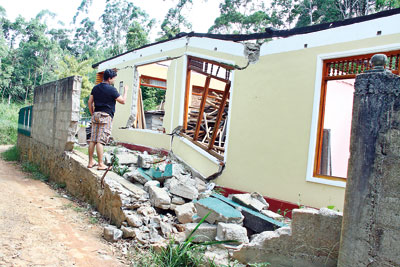
Damage to house and property: A result of the Uma Oya project
Source – 16/07/2017/ The Sunday Times, see more at – http://www.sundaytimes.lk/170716/news/uma-oya-tragedy-is-all-because-of-a-bad-eia-activists-charge-250473.html

WHO’s dengue report recommends vector control programmes as priority
The World Health Organisation (WHO) has handed over to the Health Ministry a report compiled with the aim of providing technical assistance to the Government to address the dengue outbreak.
The report was compiled following the feedback from two dengue experts from Thailand who trained clinicians here on case management. The WHO South-East Asia Regional Office also sent an epidemiologist and an entomologist to Sri Lanka.
The report recommends that vector control programmes should be given priority to reduce potential mosquito breeding places in areas affected by dengue, while it notes the meassures taken by the Health Ministry to cope with the rising number of cases.
“The Health Ministry has placed the triage protocol in place that was updated in June to cope with the outbreak. And temporary wards have been put up in hospitals to cope with the crowd and manage the distribution of patients,” the report says.
(Triage is the process of determining the priority of patients’ treatments based on the severity of their condition. This rations patient treatment efficiently when resources are insufficient for all to be treated immediately.)
According to the report, some 600,000 people have been affected in 15 districts by the latest dengue outbreak to hit Sri Lanka following the recent heavy rains, flooding and landslides.
After heavy rains, more dengue cases are reported from urban and suburban areas than from rural areas, the report notes, identifying standing water and uncleared waste dumps, among others, as potential breeding grounds for mosquito larvae.
The WHO has also handed over 50 fogging machines to the Government.
Source – 16/07/2017, Times Online, See more at – http://www.sundaytimes.lk/article/1027680/whos-dengue-report-recommends-vector-control-programmes-as-priority
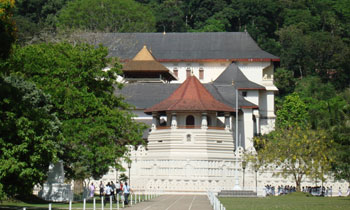
Dalada Maligawa declared world’s first Eco-Religious site
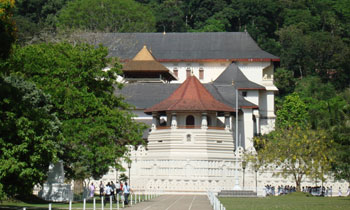
The Temple of the Tooth Relic knows as the Dalada Maligawa in Kandy had been named as the world’s first Green Religious Site, the Provincial Councils and Local Government Ministry said.
Accordingly, the entire temple premises will be made polythene/plastic-free zones.
The National programme to name the Temple of the Tooth as the world’s first green religious place of worship was held last Friday under the patronage Minister Faiszer Musthapha.
The Minister said the temple would provide recyclable vases at the entrance for devotees to offer flowers instead of the plastic vases that devotees bring inside the temple premises.
Only environmentally friendly waste bins would be used inside the temple premises under this programme, he said.
The Ministry of Provincial Councils and Local Government had allocated provisions to provide a special vehicle to dispose of flowers and food materials, he said.
Minister Musthapha said that his ministry intended to cover all the religious places in Sri Lanka under this programme.
“The aim of this programme is to lessen the difficulties faced by devotees from environmental issues due to the garbage crisis,” he said.
Source – 16/07/2017, Daily Mirror, See more at – http://www.dailymirror.lk/article/Dalada-Maligawa-declared-world-s-first-Eco-Religious-site-132896.html
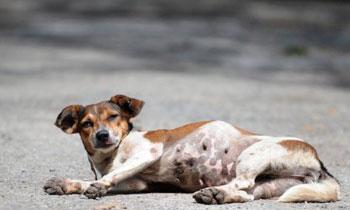
Needles used to paralyse 23 dogs, several cats
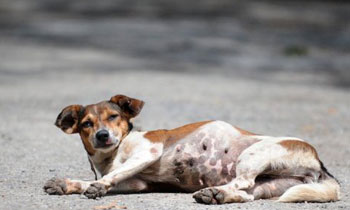
Animal activists expressed outraged today after a video of at least 23 dogs and several cats being stabbed with what looked like needles containing a toxic substance of some sort by persons inside the process of the University of Moratuwa, went viral on social media last Saturday (15).
A student of the Moratuwa University had released three video recordings which appeared to show the university authorities sticking needles into these animals thereby rending them unconscious, however he was allegedly pressurized by the authorities to remove the videos, it was reported.
Groups of animal rights activists, with the support of university students had recovered 10 cats and two dogs on Sunday (16) evening buried in a pit in a land in Homagama.
Animal rights activists who had discovered the dead animals, charged that the animals were injected with “Ketamine”, a chemical that causes paralysis in animals, but the authorities had mistakenly overdosed the cats and dogs leading few to the deaths of these animals.
It was also revealed that the dogs that had been killed within the confines of the Moratuwa University had been sterilized two weeks before by the students who had paid a veterinarian to attend to them with their own funds.
According to the students a similar incident had taken place at the Sri Jayewardenepura University a few months back where upto 100 stray cats and dogs were rounded up by the university authorities and taken away allegedly to be gotten rid of at another location. They further claimed that the university authorities had threatened some of the students with suspension if news of this was leaked to the media.
(Thilanka Kanakarathna)
Source – 16/07/2017, Daily Mirror, see more at – http://www.dailymirror.lk/article/Needles-used-to-paralyse-dogs-several-cats-132902.html
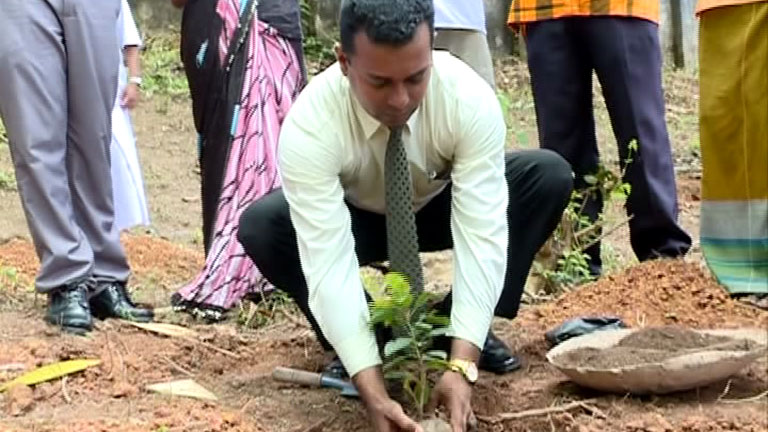
Samurdhi Green Garden launched
A Samurdhi Green Garden has been launched at the Wickremasinghepura Chitthavivekashramaya in Battaramulla.
The Samurdhi Community Organization is implementing the programme of launching environment friendly green gardens in the Wickremasinghepura area.
It was under this programme that this Green Garden was launched on the advice of Chief Incumbent of the Chitthavivekashramaya, the Ven. Kelegammana Wimalarathana Thera.
Many saplings including herbal plants are being planted here. District Samurdhi Director A.G.S. Ashoka Kumara was among those present on the occasion.
Source – ITN News, see more at – https://www.itnnews.lk/local-news/samurdhi-green-garden-launched/

A long walk for water
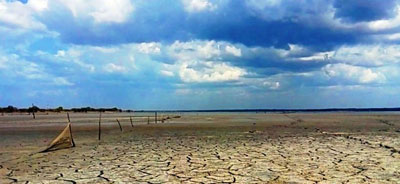
The drought in the Northern, North Central, and North Western provinces has been worsening over the past months.
These photographs captured from various parts of the affected areas show the impact of the drought. Wildlife too have been affected by the lack of water.Drinking water has become the main issue with villagers forced to travel long distances to find water. Farming lands have dried up.
Source – The Sunday Times, see more at – http://www.sundaytimes.lk/170709/news/a-long-walk-for-water-249031.html
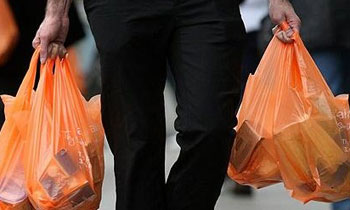
Use of polythene, rigifoam, shopping bags banned
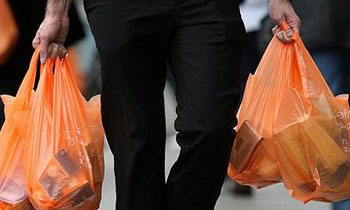
Central Environment Authority (CEA) has banned the use of polythene lunch sheets, rigifoam boxes and shopping bags, with effect from 1st of September.
In a bid to make Sri Lanka polythene-free and find a sustainable solution to solid waste management, President Maithripala Sirisena has announced a number of measures including the ban on the import, manufacture and sale of lunch sheets and a ban on the use of polythene for decorations.
Cabinet approval was granted on Tuesday for a series of measures proposed by the President in his capacity as the Minister of Mahaweli Development and Environment to gradually end the use of polythene and thus minimize its environmental impact.
While banning polythene use for decorations the manufacture, sale and use of polythene of 20 microns or less for essential activities on the approval of the Central Environmental Authority (CEA).
The short term measures also include the ban on the manufacture, import or sale of containers, plates, cups, spoons made of polystyrene, the ban on the sale of processed or cooked meals packed in polythene containers and the promotion of paper, cloth or reed bags or biologically degradable plastics for customers when purchasing items in stores, prohibition of burning polythene and plastic in open places introduction and promotion of biologically degradable polythene and plastics.
Tax concessions would be provided to import machinery for the manufacture of biologically degradable plastic and a cess tax of 15% on the import of plastic raw material and goods.
In the long term the use of recycled plastic products would be banned.
Cabinet Spokesman and Health Minister Rajitha Senaratne told the reporters at the weekly cabinet news briefing yesterday that the short term measures will be effective from Tuesday after the proposals were approved by the Cabinet.
The long and medium term measures need legislative approval for their implementation and therefore it takes time.
Responding to a journalist, he said people would go back to good old habits of using perishable lunch wrappers and food containers when the ban of polythene was in place.
(Sandun Jayasekara)
Source – 12/07/2017, DailyMirror, see more at – http://www.dailymirror.lk/article/Use-of-polythene-rigifoam-shopping-bags-banned-132675.html
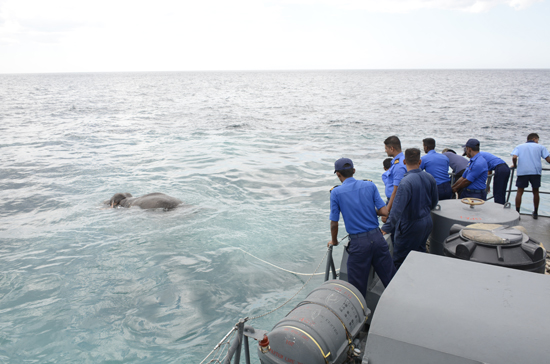
Navy rescues Jumbo at sea

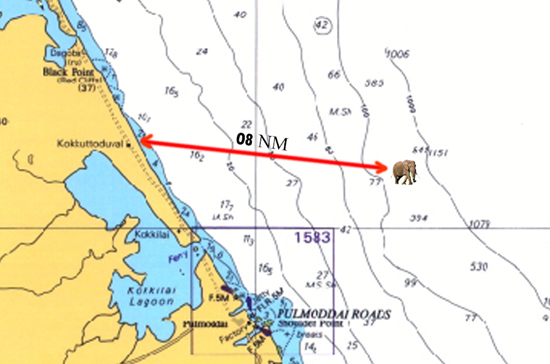
A group of naval personnel attached to the Eastern Naval Command rescued an elephant caught in a current in the seas off Kokkuthuduwai, Kokilai yesterday. Navy said the elephant dragged away by current was initially noticed by a Fast Attack Craft on routine patrol in the aforesaid sea area.
Thereupon, another Fast Attack Craft on patrol and a team of navy divers were promptly directed to the location by the Navy. A group of officials from the Department of Wildlife also joined in the rescue operation and later they were able to direct the elephant towards the coast from the deep sea.
Having safely guided the elephant to the Yan Oya area in Pulmodai , the elephant was handed over to the Wildlife officials.
(Navy Media)
Source – 12/07/2017, DailyMirror, See more at – http://www.dailymirror.lk/article/Navy-rescues-Jumbo-at-sea-132624.html



